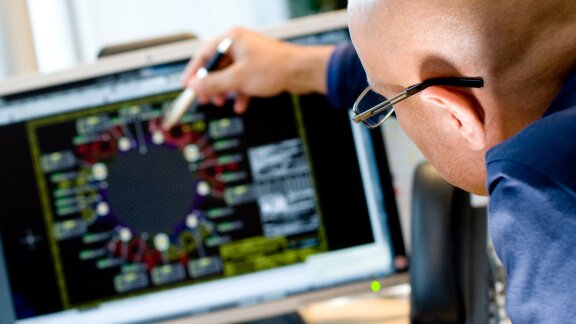DEPTH – Deep Offshore Gas Fields: A New Challenge for the Industry

A large number of gas fields are discovered offshore in depths of up to 3,000 meters and far away from the nearest coast, in areas with little or no existing oil and gas infrastructure. In addition to field development strategies including floating LNG plant and large surface facilities for processing with export to shore, the industry may in the future be seeing more subsea-to-shore developments for these types of fields.
The general challenges for field developments with long distance multiphase pipelines are pressure drop and liquid accumulation; large pipelines are needed in order to minimize pressure drop, however small enough to avoid liquid accumulation. When the pipeline length is increased, the pressure drop will also increase. However, the maximum pipeline inlet pressure that the reservoir can deliver is not dependent on pipeline length. The result is that a very small selection of pipeline diameters, with poor turndown flexibility, becomes feasible for the desired production rate.
Aker Solutions’ Role in the Study
In order to face this new challenge, Total and Aker Solutions have completed the first phase of a study for a challenging notional gas field development located at 2,500m water depth, 300 km from shore that is to be developed using only subsea technology. The vision is a fully autonomous subsea production system with tie-back to shore. The project name is DEPTH, in short of Deep Export Production and Treatment Hub.
In the initial phase of the DEPTH study, high level field development solutions were evaluated and screened for a subsea production hub exporting all fluids to shore without the support of any surface facilities. The different options drive the onshore infrastructure needed and the subsea process system complexity.
The selected philosophy for DEPTH has been to apply a subsea compression system from the first day of production, allowing a smaller pipeline diameter to be selected. This option can produce at a wider range of flow rates with good turndown flexibility, and will have a higher accumulated production over the life of the field. This is also the cheapest alternative with ret to the cost of pipeline material and installation. The feasibility is dependent on several parameters including bathymetry, fluid composition and successful technology qualification for the new operating condition.
An alternative development philosophy using subsea dehydration is also evaluated. The main driver for removing the water (both free and saturated) from the gas is to avoid using MEG, which for a long tie-back development can significantly reduce the CAPEX (no MEG infrastructure) and OPEX (large quantities of MEG required in operation), in addition to the reduced pressure drop due to less liquid in the flowline.
Currently the technology qualification need for these field development philosophies are being defined and quantified.